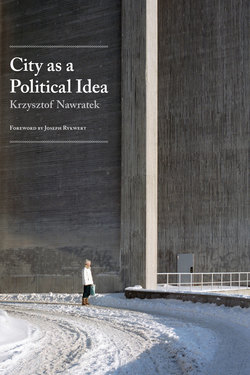Читать книгу City as a Political Idea - UNIV PLYMOUTH - Страница 4
На сайте Литреса книга снята с продажи.
ОглавлениеForeword
Joseph Rykwert
A town, a city, is a political idea – as the title of this book asserts. Of course, it is also a physical, lived experience, and since most readers of this book will be city dwellers they will have had that experience. Many of them will have found their environment troubling and hostile, as did Krzysztof Nawratek, who wrote this book in the hope that his fellow critics will join him in changing this uncomfortable reality.
Though it is a call for change, this is no call to arms. Nawratek knows the perils of violent change. He wants pressure exercised on the financing and the governance of urban space, and a new understanding of what we can demand of it. He proposes that it be done by hacking into the systems which run ‘things’, into the management structure that presents itself as absolute. The acronymic slogan of this structure, ‘TINA’, suggests that whatever improvements we might have in mind, There Is No Alternative.
However you look at it though, alternatives do offer themselves, if only because the exponential growth of the urban fabric is not really constant. While many cities – like Shenzhen or São Paulo – do seem to expand ceaselessly, there are others that shrink. A number have done so in old East Germany, and Detroit – one of the world’s great industrial centres – has lost two thirds of its population over the last sixty years while some of its fabric is riddled and perilous. Squatters occupy high-rises.
The managers who run our world, and whose belief in constant economic and industrial growth seems unshakeable, are not interested in such glitches. Yet we have to reckon with them, and with the imbalance of cities where high-rises are surrounded by spontaneous, uncontrolled and miserable suburbs.
Against that, Nawratek calls for cities which not only enable but even entice citizens to engage with each other: a city which regulates and orders neighbourly relations so that it initiates and facilitates personal interaction. And he hopes to show how such relations can be formed to foster civic virtue among its inhabitants.
This high – but attainable and wholly desirable – aim inevitably reflects on the physical fabric of the city. He offers the English reader an understanding of Belfast as well as Porto Alegre in Brazil, Manchester as well as Riga. He calls on research which the late Kevin Lynch carried out in Boston sixty years ago, when he observed how Bostonians plotted their city and how their mental map related to the way they inhabited and ‘used’ it. That such a readable form helps the inhabitant to feel at home in a city is too well-attested to require comment. It is, in a way, the guarantee that the social capital of trust and interdependence can flourish in it.
For the city which Nawratek proposes to construct is a city in which all participate: in which the immigrant is not an alien, and where electronic communications are no substitute for personal relations; a city where private ownership and the commercial exploitation of urban space are subsumed to the public interest and the citizen’s quest for areté. Like him, I hope that such cities will come about, piecemeal perhaps, and without harsh sanctions. His may not be a call to arms, but it is certainly an inducement for us to change our ways.
Joseph Rykwert
Paul Philippe Cret Professor of Architecture Emeritus at the University of Pennsylvania. Author of many important architectural works, including: The Idea of Town (1963) and The Seduction of Place (2000).
